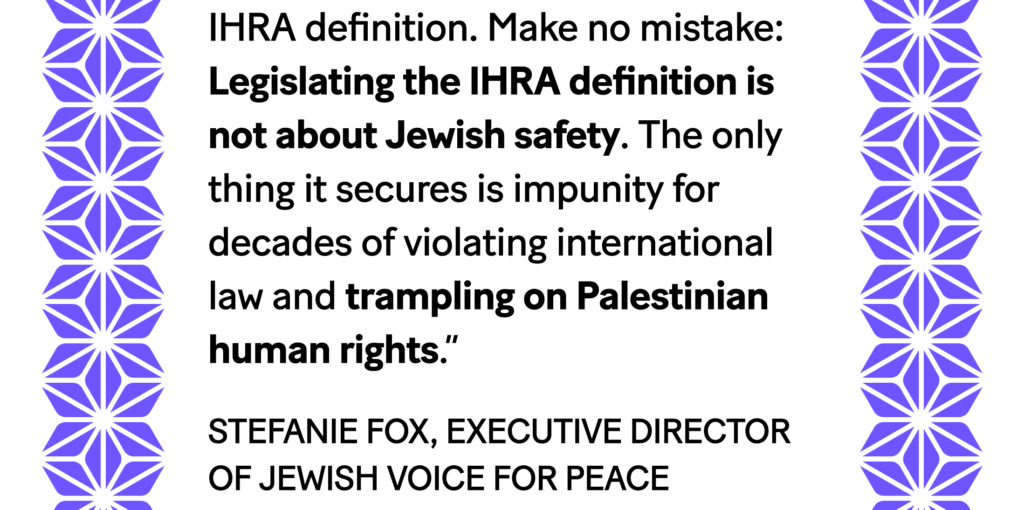128 scholars have urged the United Nations not to adopt the controversial International Holocaust Remembrance Alliance (IHRA) definition of anti-Semitism due to its “divisive and polarising” effect.
In a statement issued on November 3rd, the 128 scholars, who include leading Jewish academics at Israeli, European, United Kingdom and United States universities, said the definition has been “hijacked” to protect the Israeli government from international criticism.
“What we object to and strongly warn against is that the UN would jeopardise this essential fight and harm its universal mission to promote human rights by endorsing a politicised definition that is instrumentalised to deter free speech and to shield the Israeli government from accountability for its actions.” – the scholars say.
The statement by the scholars said the definition was “vague and incoherent” and welcomed a recent report by Professor E Tendayi Achiume, the UN special rapporteur on contemporary forms of racism, who heavily criticised the IHRA definition for its negative impact on human rights.
Alon Confino, a Pen Tishkach chair of Holocaust Studies and professor of history and Jewish studies at the University of Massachusetts Amherst, warned that if the UN adopts the IHRA definition, “the damage will be exponentially bigger to human rights, but also the UN itself”.
“More than anything else, the definition will be weaponised against the UN,” Confino said.
The next Israeli government, set to be formed by Prime Minister Benjamin Netanyahu’s party and far-right allies, is more extreme than any other in Israel’s history, Confino said, and he expected it to ramp up the “political instrumentalisation of anti-Semitism”.
